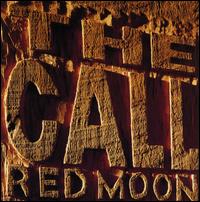
The Call is an American rock band formed in Santa Cruz, California, in 1980. The main lineup consisted of members Michael Been, Scott Musick, Tom Ferrier, and Jim Goodwin. The band released nine studio albums over the next two decades before disbanding in 2000. Their 1986 song, "I Still Believe ", was covered by Tim Cappello and included in the 1987 film The Lost Boys. The band also achieved significant success in 1989 with "Let the Day Begin", which reached No. 1 on the Billboard U.S. Mainstream Rock chart and was later used as a campaign theme song for Al Gore's 2000 Presidential Campaign.

Nada Surf is an American alternative rock band formed in New York City in 1992, consisting of Matthew Caws, Ira Elliot (drums), and Daniel Lorca.

MCA Records was an American record label owned by MCA Inc. established in 1972, though MCA had released recordings under that name in the UK from the 1960s. The label achieved success in the 1970s through the 1980s, often by acquiring other record labels, from ABC to Motown to Geffen. MCA Inc. became Universal Studios, Inc., in 1996, and the MCA record label was folded into Universal Music Group's Geffen Records in 2003, but Universal's MCA Nashville continues to use the moniker.
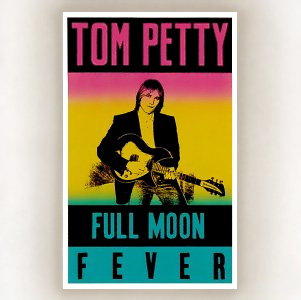
Full Moon Fever is the debut solo studio album by American musician Tom Petty, released on April 24, 1989, by MCA Records. It features contributions from members of his band the Heartbreakers, notably Mike Campbell, as well as Jeff Lynne, Roy Orbison, and George Harrison, Petty's bandmates in the Traveling Wilburys. The record showcases Petty exploring his musical roots with nods to his influences. The songwriting primarily consists of collaborations between Petty and Lynne, who was also a producer on the album. Full Moon Fever became a commercial and critical success, peaking at No. 3 on the U.S. Billboard 200 and being certified 5× platinum in the United States and 6× platinum in Canada.

To Our Children's Children's Children is the fifth album by the Moody Blues, released in November 1969.

Patty Loveless is an American country music singer. She began performing in her teenaged years before signing her first recording contract with MCA Records' Nashville division in 1985. While her first few releases were unsuccessful, she broke through by decade's end with a cover of George Jones's "If My Heart Had Windows". Loveless issued five albums on MCA before moving to Epic Records in 1993, where she released nine more albums. Four of her albums—Honky Tonk Angel, Only What I Feel, When Fallen Angels Fly, and The Trouble with the Truth—are certified platinum in the United States. Loveless has charted 44 singles on the Billboard Hot Country Songs charts, including five which reached number one: "Timber, I'm Falling in Love", "Chains", "Blame It on Your Heart", "You Can Feel Bad", and "Lonely Too Long".
Giuffria was an American rock band from Washington, D.C., formed in 1981 by Gregg Giuffria after his departure from the band Angel.

Anthony Lawrence Carey is an American musician, composer, producer, and singer/songwriter. In his early career he was a keyboardist for Rainbow. After his departure in 1977, he began a solo career, releasing albums under his own name as well under the pseudonym Planet P Project, and producing for and performing with other artists.

Cher is the eighteenth studio album by American singer-actress Cher, released on November 10, 1987 by Geffen Records. The album has been certified Platinum in the US by the RIAA and Gold in Australia by ARIA and the UK by BPI.

Music for a New Society is the eighth solo studio album by the Welsh musician John Cale, released in September 1982 by ZE Records and Island Records. With the suggestion from ZE Records owner Michael Zilkha, Cale performed the album mostly improvised live at Skyline Studios in New York City. The album was a creative shift after several rock-oriented albums, with sparse piano-based performances.
Jude Anthony Cole is an American singer, songwriter, record producer, and talent manager from Carbon Cliff, Illinois. He began his career as part of Moon Martin's backing group the Ravens, and joined the English power pop band the Records in 1980, by the age of 19. After his work on their album Crashes (1980), he signed with Reprise Records to pursue a solo recording career and released his eponymous debut studio album (1987), which was followed by four subsequent releases—A View from 3rd Street (1990), Start the Car (1992), I Don't Know Why I Act This Way (1995), and Falling Home (2000). Afterward, he outsourced his work onto management, production, and songwriting for the alternative rock band Lifehouse. Cole was credited on most of their singles throughout the 2000s, including "You and Me," "First Time," "Whatever It Takes" and "Halfway Gone" — each became hit songs on the Billboard Hot 100, Mainstream Top 40, Adult Top 40, and Adult Contemporary charts.
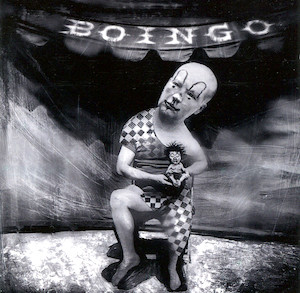
Boingo is the eighth and final studio album by American new wave band Oingo Boingo. It was the band's only album recorded for the label Giant Records. With Boingo, the band's sound changed to a guitar-driven rock style, with Danny Elfman having released the keyboard and horn players after the first recording attempt.
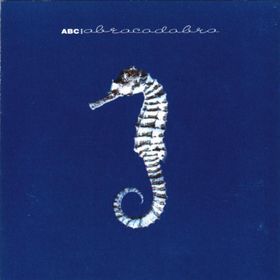
Abracadabra is the sixth studio album by English band ABC. It was originally released in August 1991, on the label EMI. It was the final ABC album to feature founding member Mark White, who departed the band in 1992.

Born Ruffians are a Canadian indie rock band based in Toronto. Officially founded in 2004 in the Georgian Bay town of Midland, Ontario, the band is composed of frontman Luke Lalonde, bassist Mitch DeRosier, drummer Steve Hamelin, and keyboardist Maddy Wilde. During the 2010s, they were also joined by Andy Lloyd (guitar/keyboards) and Adam Hindle (drums). Born Ruffians released their debut album Red, Yellow & Blue in 2008, and have since released eight albums in total, including the latest albums being Juice and Squeeze, released in 2020; and Pulp released in 2021.
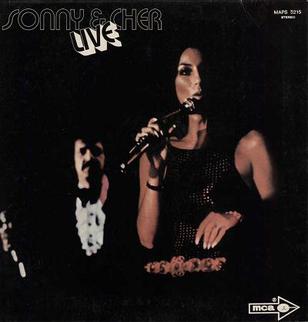
Sonny & Cher Live is the first live album by American pop duo Sonny & Cher, released in 1971 by Kapp/MCA Records. The album reached #35 on the Billboard chart and was certified Gold for the sales of 500,000 copies.

Dreams That Money Can't Buy is the second solo studio album by the English singer and musician Holly Johnson, released by MCA Records in 1991. The album was produced by Andy Richards, except "Penny Arcade" which was produced by Dan Hartman.
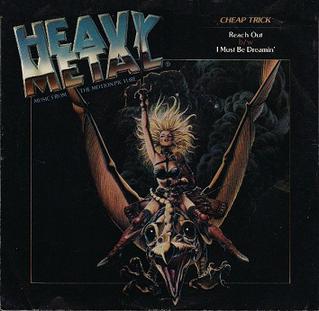
"Reach Out" is a song by American rock band Cheap Trick, released in 1981 as a single from the soundtrack of the 1981 film Heavy Metal. It was written by Bob James and Pete Comita, and produced by Roy Thomas Baker. Although the film's soundtrack album reached No. 12 on the Billboard 200, "Reach Out" was not a commercial success and failed to make a chart appearance.
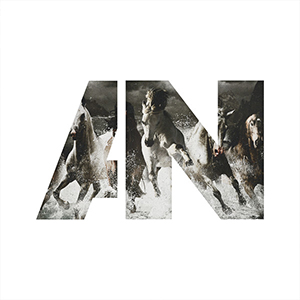
Run is the second studio album by American rock band Awolnation. It was released on March 17, 2015 through Red Bull Records. It was the band's first studio album in four years, succeeding Megalithic Symphony (2011).
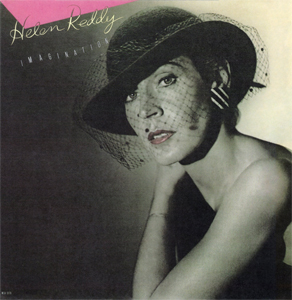
Imagination is the fourteenth studio album by Australian-American pop singer Helen Reddy and was released in February 1983 as her second LP for MCA Records. As with the first of the two, 1981's Play Me Out, it did not reach Billboard magazine's Top LP's & Tapes chart. MCA ended their contract with her afterward; in her 2006 autobiography, The Woman I Am: A Memoir, Reddy wrote, "I was not surprised when I received a form letter from [MCA]'s legal department telling me that I'd been dropped from the label."
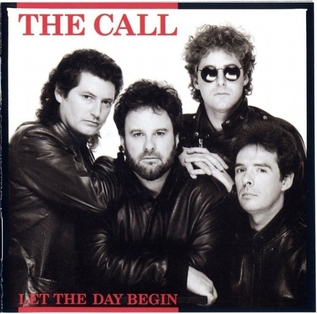
Let the Day Begin is an album by the American band the Call, released in 1989. The band's former label, Elektra Records, declined to release the album.
